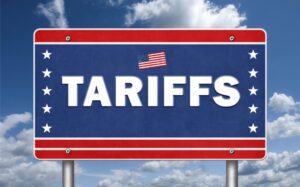
The escalating trade tensions between the U.S. and Canada over steel and aluminum tariffs could have ripple effects on Australia’s economy and trade relationships. While Australia has secured exemptions from U.S. tariffs on steel and aluminum, increased global protectionism and potential shifts in supply chains may still impact Australian exporters. If Canada redirects its metal exports to other markets, including Asia, Australian steel and aluminum producers could face increased competition, potentially driving down prices. Additionally, disruptions in North American trade could weaken global demand for raw materials, affecting Australia’s resource-driven economy.
Beyond metals, broader trade uncertainty may influence Australia’s economic outlook, particularly if retaliatory tariffs between major economies lead to reduced global growth. As a country heavily reliant on exports, Australia could see shifts in demand for key commodities like iron ore and coal if industries in affected nations scale back production. Moreover, if the dispute escalates into broader trade conflicts involving other partners, Australia may need to navigate complex diplomatic and economic challenges to protect its trade interests. While the direct impact remains limited for now, ongoing developments in global trade policies will be closely watched by Australian industries and policymakers.
